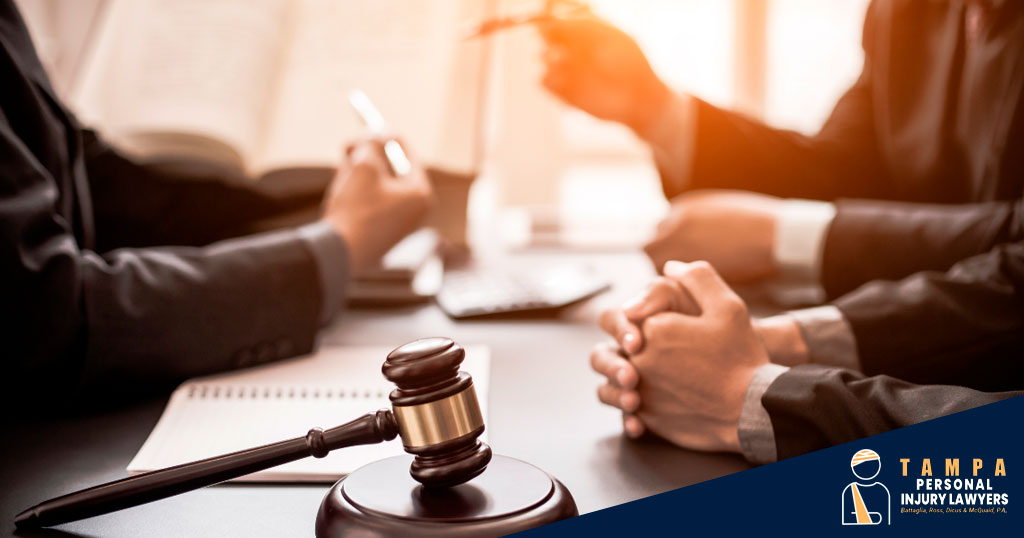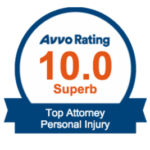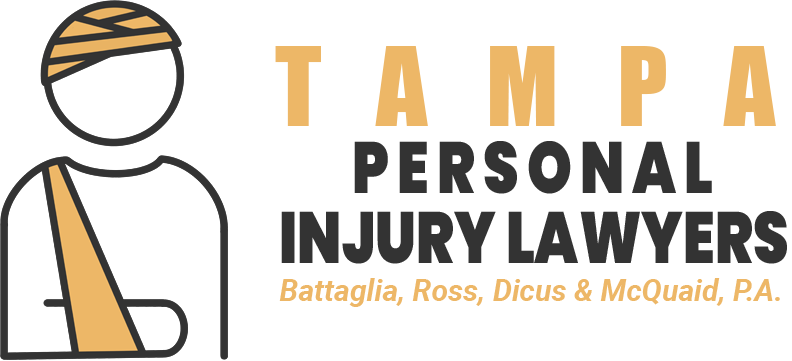If you get injured because of someone else’s negligence, you might find yourself wondering how you’ll afford to pay for all the damages, like medical bills and car repairs. This is when you need a Tampa personal injury lawyer to help you build a strong case and recover damages by way of filing a personal injury claim.
While building a strong personal injury claim, your focus should be to recover and get your life back on track so you can return to normalcy. As such, you’ll want to make sure you have an expert attorney helping you build a strong case with a good chance of winning the compensation you need and deserve.
Read on to find out how to build a strong Tampa personal injury claim and how you can contact an experienced attorney with the qualifications to help you win your case.
Table of Contents
ToggleWhat Are Some Promising Ways to Strengthen My Personal Injury Claim in Tampa?
It’s always best to work with a trusted and qualified Tampa personal injury lawyer who has a proven track record and a strong reputation in your area. If you try to handle your case alone, it will take longer and you’ll face more obstacles.
Here are some proven steps you can follow through in order to increase your odds of winning a higher settlement or payout.
Rather Than Waiting, Get Medical Attention Right After the Accident
This is a common mistake too many people make. They have a meeting or an engagement to arrive at on time and delay getting medical care, but this is a huge mistake. The right thing to do to protect your rights and your future financial compensation is to get medical attention immediately after the accident. Don’t underestimate the temporal connection between the incident and when you decide to get treatment. If you wait too long, this can be misinterpreted as you having injuries that aren’t as bad as you claim or that your injuries aren’t so serious that you thought immediate medical care was necessary.
If You Have a Pre-existing Condition, Disclose That to Your Medical Care Provider
The best policy in most cases, including personal injury cases, is honesty. That means being clear and upfront with your doctor (and your lawyers) about your state of health before and after the accident.
Giving clear and honest information upfront will save you headaches down the line and also can help strengthen your personal injury claim by easily being able to differentiate any pre-existing conditions from new injuries that have been caused by the accident. If you can present a clear and concise picture of the exact nature and extent of injuries you’ve suffered from the accident, it will be easier to negotiate an exact dollar amount that matches the cost of all your damages.
Be sure to explain to your doctor in as much detail as possible about your pain, suffering discomfort, but don’t over exaggerate or lie about any injuries.
Follow Your Doctor’s Orders Closely and Stick to the Prescribed Treatment Plan
Once you see a doctor, you can’t just go on about your life as you did before the injury. Insurance companies will be keeping a closer watch on you thank you might think, so it’s vital to really stick to your doctors orders and follow up on all appointments. This includes taking any medication they prescribe or following a treatment plan they recommend, such as physical therapy, rehab, or chiropractic adjustments.
If the insurance company sees that you didn’t listen to your doctor’s recommendation, they’ll think you were fine since you ignored professional medical advice. This in turn will be an excuse they use to pay you less. A doctor’s orders are not only to protect your health but also will protect your legal rights by leaving a trackable trail of proof that you had to get treatment for accident induced injuries.
Collect Good Evidence and Be Sure to Preserve It Properly
Gathering evidence the the keynote of all personal injury claims – but you need to make sure you’re preserving it and getting the right pieces of evidence. Simply writing down your account (while somewhat useful) will not suffice to support your claim for damages. We’re talking about a substantial sum of money here, so you need hard proof and evidence to back your injury claim. The sooner you collect evidence, the better you can preserve it and have it in its original condition and quality.
What Kind of Evidence Do I Need for My Personal Injury Case?
So let’s say you’ve been in an accident and are now injured at the hands of another party’s negligence. If so, you need to prove their negligence in order to build a strong basis for your claim and expect to win any money as damage compensation. A skilled attorney who has handled such cases can assess your unique case and advise you on exactly what evidence you need specifically for your case. Generally speaking, here are a few types of evidence all personal injury claims require.
1. Official Police Reports
Bear in mind that if you are involved in any type of motor vehicle in Florida with damages exceeding $10,000 in bodily injury or property damages, you are legally required to contact local authorities such as the police, state troopers, or highway patrol. Then, you’ll need to obtain an official copy of the police report, which will help establish the other party’s negligence or fault in the accident.
If for some reason you don’t contact the police at the scene of the accident, you can file an accident report online. You can file an incident report for any type of incident online, including car accidents, slip and falls, animal attacks, and boat accidents, and more. Accident reports are crucial pieces of evidence that serve as proof that you suffered injuries and have an officially documented record of this incident.
2. Photographs and Video Footage
Pictures and videos are indisputable types of evidence that show the accident and the resulting disaster. Take pictures at the scene of the accident including the surrounding environment, your injuries, all vehicles or property involved, and anything else relevant and helpful to show what happened .
3. Personal Documentation Such as Journaling
Keeping a journal is a great way to really show the emotional and mental turmoil you went through due to any accident-related injuries. Perhaps your quality of life has suffered because you can’t work or participate in activities you used to enjoy, or can’t perform certain roles and responsibilities in your life as you are expected to.
If you’re a parent of young children, it can make your life very difficult to be a caretaker with injuries that debilitate or even slightly limit your capacity to move, be productive and simply keep up with life.
Don’t underestimate the power of your personal account of how the injuries have negatively impacted your life. It’s not a sob story you’re selling, but a real account of how your real life has been damaged and how you’ve incurred losses because of the accident. Many cases that go to trial end up winning higher settlements when the jury empathizes with the injury victim.
4. Witness Testimony
Anyone who saw the accident first-hand can offer valuable evidence to support your claim. Be sure to get their contact information on the accident scene and their account of what they saw happen whileit’s fresh in their memory.
5. Proof of Lost Income and Other Hard Copies of Losses
The only way to make up for lost wages is by proving you actually lost them because of the accident. You can prove this by asking your employer to write you a letter that specifies your salary or pay rate and how much time you’ve been out of work. If you’re unsure of how to get this and your employer for some reason won’t comply, consult your attorney for more advice.
7. Evidence to Prove Your Pain and Suffering
Pain and suffering damages are a little more complex than economic damages when it comes to calculating and claiming. Since pain and suffering, like mental anguish and depression, don’t have a price tag on them, it’s a subjective calculator and requires the help of a knowledgeable Tampa personal injury lawyer who is familiar with these figures and the brackets for accurate pain and suffering calculations.
Losing enjoyment in your life, emotional distress, relationship and family duress, and PTSD are all (but not an exhaustive) list of examples of pain and suffering damages you can seek compensation for. Speak to a lawyer who can give your case an authentic assessment for its merits and how much you can realistically expect to claim for pain and suffering damages.
8. Medical Bills
Keep a copy of all medical invoices, bills, and payments you’ve had to make related to accident injuries. These are the exact numbers you’ll be asking for reimbursement for, so don;’t leave anything out. Everything from travel costs to doctors visits and prescriptions drugs can be recuperated. Stay organized and keep track of everything to get an accurate calculation of how much you can claim.
Mistakes to Avoid So You Don’t Hurt Your Personal Injury Claim
Believe it or not, there are mistakes you can make that can potentially hurt your case and ultimately cause you to walk away with less money. The last thing you want to do is make a mistake that could have been avoided by simply working with a smart and experienced lawyer.
Don’t make these mistakes.
Collecting the Wrong Type of or Insufficient Evidence
Building a strong and successful personal injury case all starts with gathering the right type of evidence and enough of it to back up your claim. Your attorney can advise you on exactly what you need to start gathering or they may even be able to gather evidence on your behalf.
Missing Out on an Opportunity to Get Evidence From Witnesses
Witness statements can make a big difference in presenting two different sides of a story, especially if your case ends up going to trial. So remember to speak to witnesses and get a detailed account of what they saw while at the accident scene, if possible.
Procrastinating on Taking Legal Action
There is a time limit in Tampa (Tampa’s Statute of Limitations) which gives a time limit for any plaintiff to take legal action against a defendant and seek damages compensation. If you don’t file a claim within the statute of limitations, you no longer have the right to seek any type of reward, compensation, or recourse for your injuries and losses for that particular accident.
Waiting Too Long to Get Medical Care
This just gives the insurance company an excuse to dispute your claim and questions the true extent of your injuries.
Failing to Work With an Attorney
Working with an attorney will increase your odds of winning your case and walking away with a higher settlement by more than 90% – this is a proven fact.
Call Us Today or Book a Free Consultation Online
If you need help with a personal injury claim, don’t waste any time and get in touch as soon as you can with the best Tampa personal injury lawyers in your area. We offer a free initial consultation so you have absolutely nothing to lose by contacting us now.






























